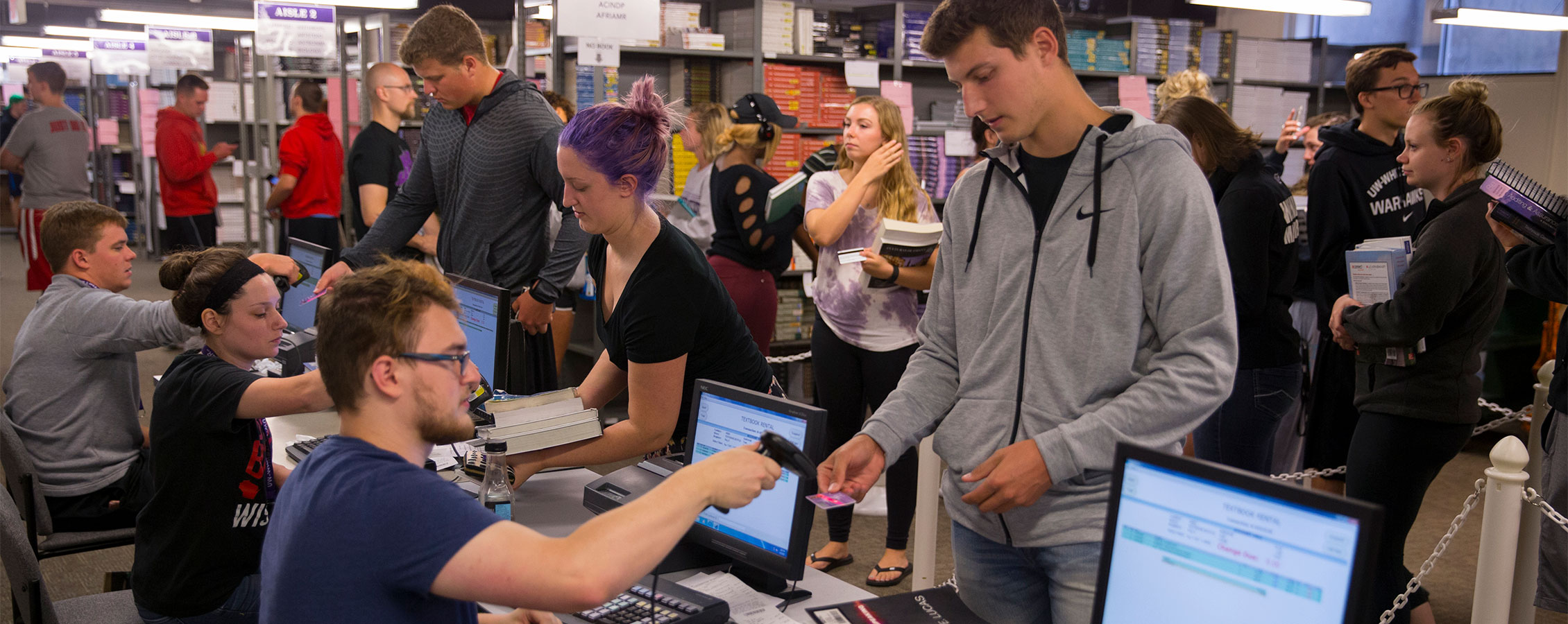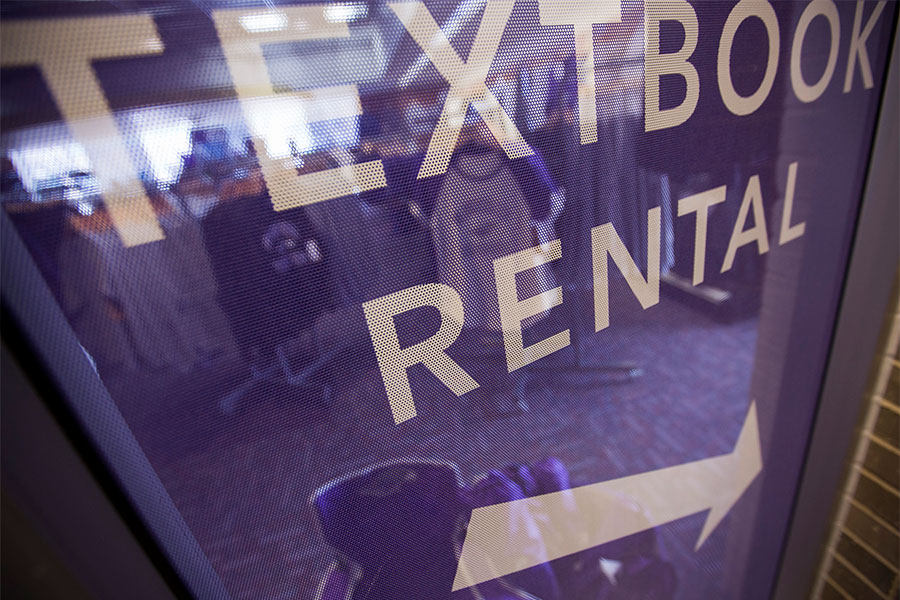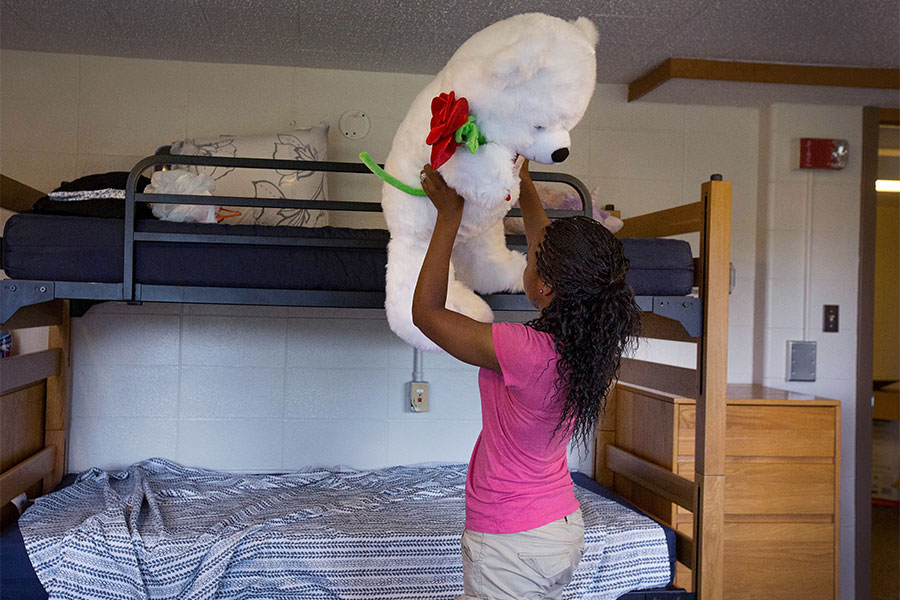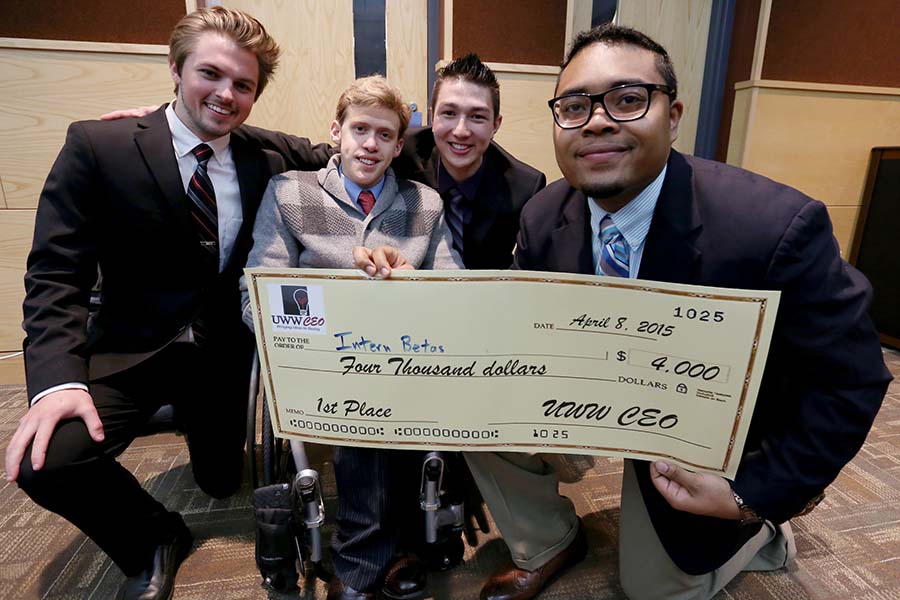TUITION
Affordability. We know that’s one of the most important factors in choosing a college.
The University of Wisconsin-Whitewater is proud to offer the most affordable tuition among all schools in the UW System — and a list of amenities that will save you significantly on textbooks, transportation and more.
Named Best Value in the UW System
When you’re comparing college costs, it’s important to consider more than the listed tuition and fees. Your out-of-pocket expenses can vary greatly depending on financial aid eligibility, as well as what’s included with tuition, fees, and housing expenses.
At UW-Whitewater, we’re committed to keeping your education affordable. Including textbooks in your tuition and covering some of your everyday living expenses saves you and your family money — and these extras are one more way we support you academically and socially.
What makes UW-Whitewater the best value?
An overview of University of Wisconsin-Whitewater cost and fees for undergraduate programs:
Estimated undergraduate annual tuition and fees (2025-2026 Academic Year)
| Tuition and Fees | Housing (double occupancy) | Meal Plan (14 meals/week) | Total | |
|---|---|---|---|---|
| Wisconsin Resident | $9,047 | $4,916 | $3,232 | $17,195 |
| Nonresident * | $19,147 | $4,916 | $3,232 | $27,295 |
| Minnesota Resident | $10,852 | $4,916 | $3,232 | $19,000 |
| Return to Wisconsin ** | $14,754 | $4,916 | $3,232 | $22,902 |
| Rock County Campus (WI Resident) *** | $6,084 | ---- | ---- | $6,084 |
*Nonresident scholarships offer an annual reduction of tuition based on merit. Incoming new freshmen who meet specific academic criteria will automatically qualify at the time of admission. These scholarships are renewable and valid for a maximum of eight semesters (fall and spring only). To renew this scholarship, you must maintain a 2.5 GPA as a UW-Whitewater student.
**Nonresident children and grandchildren of a University of Wisconsin-Whitewater graduate are eligible for a reduction of non-resident tuition upon admission to the University of Wisconsin-Whitewater. For more information, contact the UW-Whitewater Office of Admissions by email at uwwadmit@uww.edu or by phone at 262-472-1440.
*** Rock County Campus students are eligible to live in residence halls on the Whitewater Campus for the same cost that Whitewater Campus students pay.
A look at University of Wisconsin-Whitewater tuition for graduate programs:
Estimated graduate semester tuition and fees (Fall 2025, Spring 2026)
| Full Time* | Per Credit | |
|---|---|---|
| Wisconsin Resident | $5,531.33 | $614.60 |
| Non-resident | $11,061.38 | $1,229.05 |
| Graduate Business – Resident | $5,883.95 | $653.78 |
| Graduate Business – Nonresident | $11,429.93 | $1,270.00 |
| Graduate Business – Online** | (per credit only) | $708.00 |
| Graduate Communication, IDLT, Business Ed – Online** | (per credit only) | $620.00 |
| Graduate Computer Science – Resident | $6,365.81 | $707.32 |
| Graduate Computer Science – Nonresident | $11,803.52 | $1,311.51 |
*9 or more credits
**Regardless of residency
Complete UW-Whitewater financial information »
The value of a UW-Whitewater degree
You may be wondering: Is a college degree a wise financial decision? After all, you are investing time and money with the expectation you are gaining something valuable in return. A college education is life-changing in many ways. And a UW-Whitewater degree, in particular, is an exceptional investment.
When it comes to economic opportunity, jobs requiring a bachelor’s degree or master’s degree are expected to grow the fastest over the next decade, according to the Bureau of Labor Statistics.
How much money do UW-Whitewater alumni make?
A recent study surveyed graduates from the Classes of 1982-2023. The average alum across those classes is earning $97,500 per year. In comparison, the average annual income of a 25- to 54-year-old high school graduate is $46,208.
How fast does a UW-Whitewater degree pay off?
According to the study, for the UW-Whitewater class of 1995, the rate of return on their college investment took 10.3 years. For graduates in 2015, that had decreased to just 8.4 years, much faster than the national average of 13 years.







